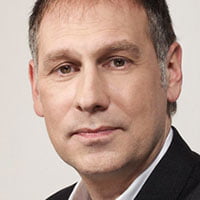Class apart
By Solomon Nwabueze
22-09-2017
Talent is everywhere but opportunity isn’t. That’s the problem facing television in 2017.
It’s about class. It’s not about heritage, race or gender; it all comes down to class in the end.
I’m a science graduate. I was lucky enough to end up at the BBC on one of its training schemes. I had all of those benefits afforded to me, one thing leads to another and doors open. For anybody who doesn’t have that chance or opportunity, if you don’t go to film school or you don’t have the stars align like they did for me, then it’s tough to break into TV if you’re a creative young person.
I went on to work in the record industry for 15 years, at Warner Vision International and Sony. I was fascinated by the idea that you could walk through the door at Sony on London’s Great Marlborough Street with an idea and my artists and repertoire guy would listen to your demo. It’s not like that in TV and film, where there are layers of bureaucracy and avenues that you have to go down. If you approach Channel 4 or the BBC they will refer you to another prodco to be a conduit, so you’re one step removed.
The majority of shows I made after leaving the BBC were made with the regional arms of ITV such as Granada and Yorkshire-Tyne Tees Television. I could get commissions outside London, but that’s all gone. You don’t have multiple access points, it’s been concentrated in the capital. We know what the rents are in London. Without parental support, most young people can’t sustain rent in the capital while pursuing an idea in film, television, dance, music or games.

Phil Edgar-Jones
I’ve become focused on a means to let young people have their own say, those who are under-represented in front of and behind the camera from a socio-demographic point of view. I wanted to put together a creative device to get those voices to the screen – a scheme with an outcome. We wanted to put a shout out for people to make short films, aged between 18 and 25, not in full-time employment and/or education – people not within the usual ‘film school circle.’
We went out through social media and contacts from Creative England and the National Youth Theatre, but the biggest leg-up we had was from Phil Edgar-Jones, director of Sky Arts and head of entertainment at Sky1. Shortflix, the scheme we launched earlier this year, was the outcome and we’ve just announced our ambitions for the next round.
We initially had more than 700 submissions in six weeks and the standard was amazingly high. The issues covered were not the obvious ones; people pigeonhole young people and TV’s class problem means those voices are often missed out. We had things on suicide, homosexuality, coming of age – it was amazing.
Phil committed to broadcasting five of them on Sky, selected by a panel and with introductions from talent such as our Shortflix ambassadors Riz Ahmed and Ellie Kendrick, which we hope will make them appointment viewing.
It has given people the confidence that they can pitch and won’t be ignored. Previously they were putting ideas forward with a mindset that it wasn’t worth it, that a TV exec in London may not be receptive to hearing from a young person just starting out in Leeds, Birmingham or Manchester. The individuals that took part in Shortflix now have films they can show people.
The more points of entry, the more points of view will be reflected. Everybody bangs on to me about plurality. Instead of talking about it, I wish people would just do it. That’s what has driven me to Shortflix.
This is worth bothering with because broadcast television and culture can cut through so much crap that might be going on. In an age of false information, fake news and so on it’s more urgent than ever. There is always another point of view and if that is not heard or people don’t care about it then it leads down a dangerous path. A great many issues we’re currently having in society happen because people don’t feel they are being heard.














.jpg)




























